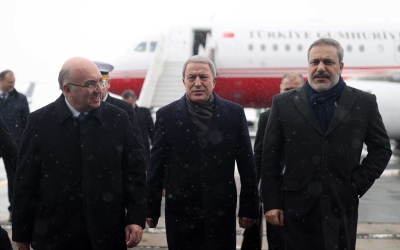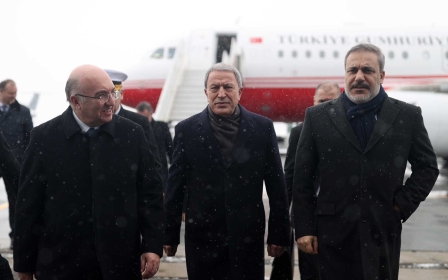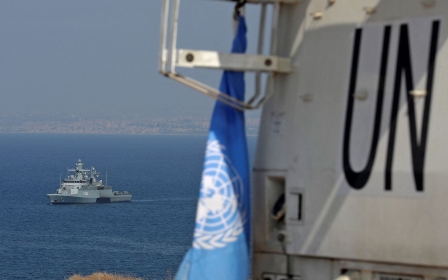UAE foreign minister meets Syria's Assad in further sign of warming ties
The United Arab Emirates' top diplomat met with Syrian President Bashar al-Assad on Wednesday in Damascus, the latest sign of Syria’s warming ties to the Gulf state.
The two sides discussed boosting economic ties. The UAE also affirmed its support for a political solution to the Syrian crisis that restores Syrian sovereignty over all of its territory, according to the UAE state news agency, WAM.
Emirati Foreign Minister Sheikh Abdullah bin Zayed first visited Syria in November 2021, paving the way for Assad’s historic trip to the UAE in March 2022, his first to an Arab country since the outbreak of Syria’s war a decade ago.
The Syrian government became an international pariah when it violently cracked down on protests in 2011, sparking a civil war that continues today. According to the Syrian Observatory for Human Rights, half a million lives have been lost.
But in recent years, many Arab countries, most prominently the UAE, have resumed ties with Damascus.
A growing number of countries in the region have started to accept Assad as the war’s victor and have made moves towards reconciliation. Jordan's King Abdullah II held a phone call with Assad in October 2021 and Algeria has voiced support for Syria rejoining the Arab League.
Last week, talks between the Syrian and Turkish defence ministers were held in Moscow in the highest-level encounter reported between the neighbouring countries since the war began.
Turkey has played a significant part in Syria's conflict, backing Assad's opponents and sending troops into the north.
Turkey also hosts more than 3.6 million Syrian refugees, according to the UN refugee agency.
Ninety percent impoverished
Aided by Iranian ground forces and Russian airpower, Assad has restored control over two-thirds of Syria, but the conflict has come at a great cost.
In addition to half a million people being killed by fighting, half of the country's pre-war population is either internally displaced or they are living abroad as refugees.
Syria's reconstruction costs are estimated to be tens of billions of dollars, but its economy is on the verge of collapse.
According to the UN, 90 percent of the country is living in poverty. Power outages for up to 20 hours a day are common in the capital. Syria's financial system - isolated as a result of western sanctions - has also been hit by the crises in neighbouring Lebanon.
The value of the Syrian lira has plummeted, as the country struggles with economic despair, sanctions and the damage that war has wrought on infrastructure and services.
Middle East Eye propose une couverture et une analyse indépendantes et incomparables du Moyen-Orient, de l’Afrique du Nord et d’autres régions du monde. Pour en savoir plus sur la reprise de ce contenu et les frais qui s’appliquent, veuillez remplir ce formulaire [en anglais]. Pour en savoir plus sur MEE, cliquez ici [en anglais].





